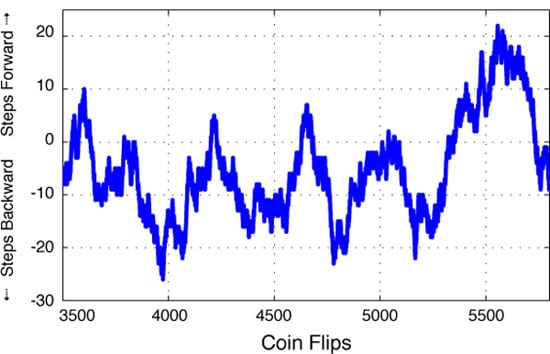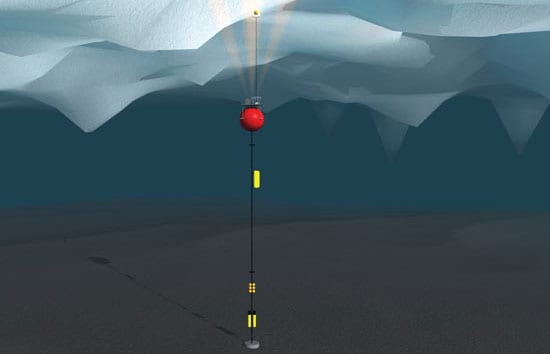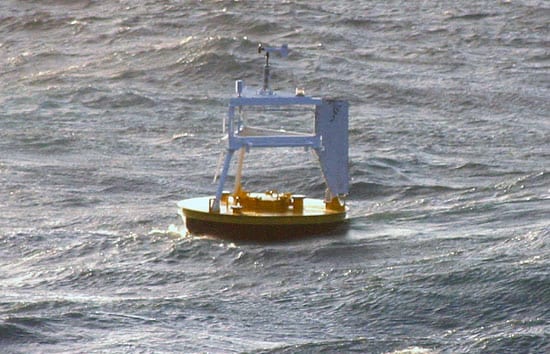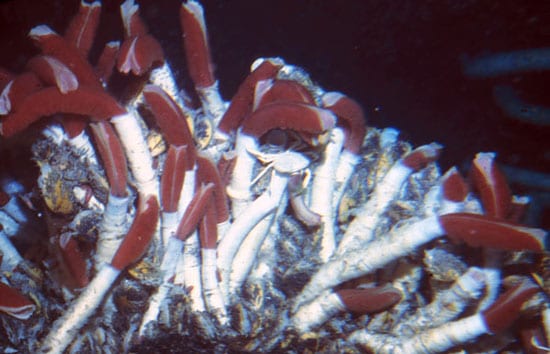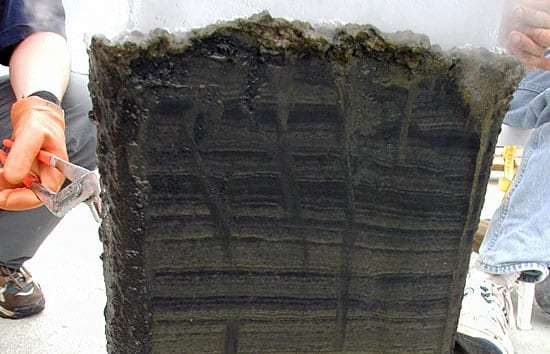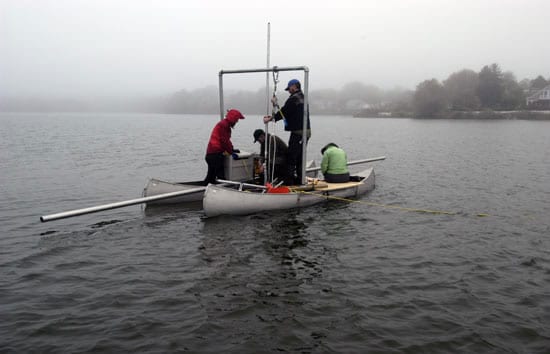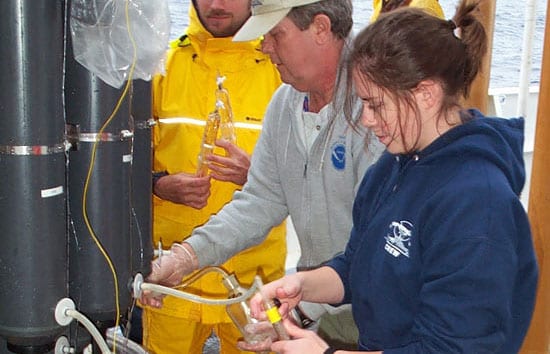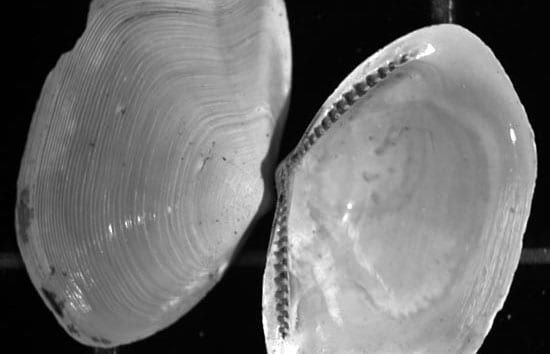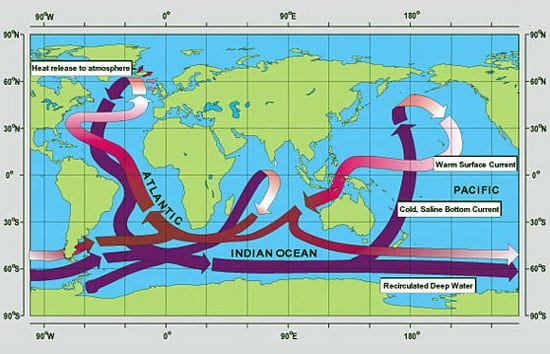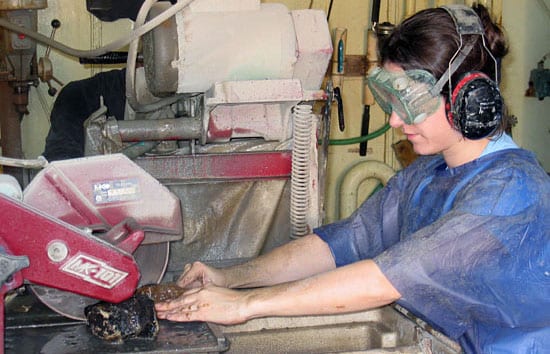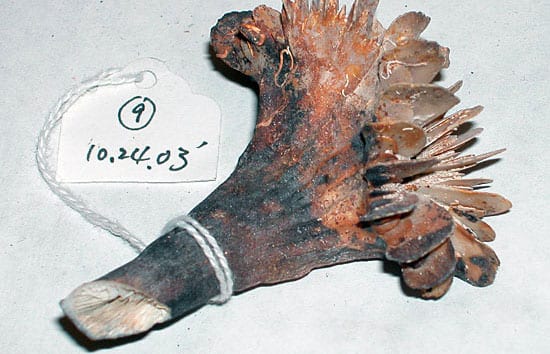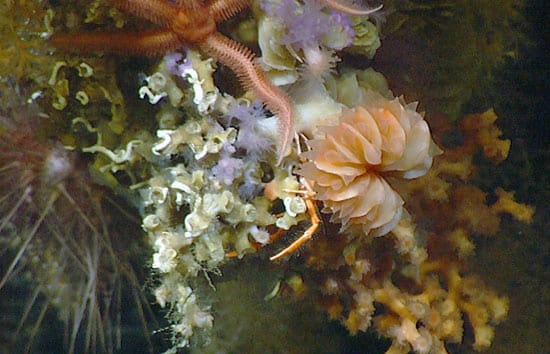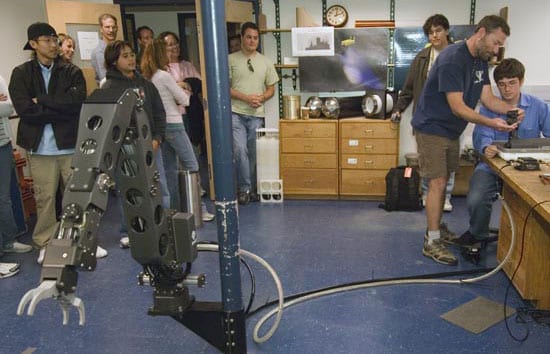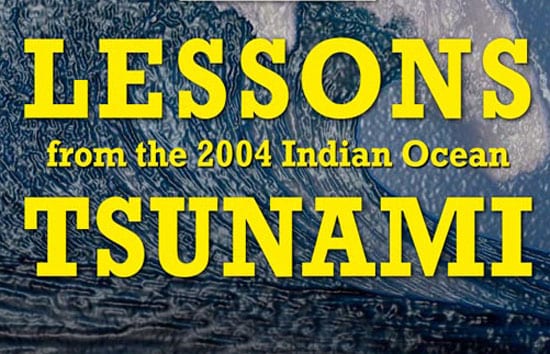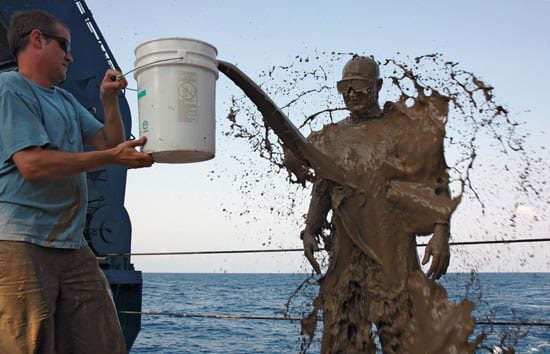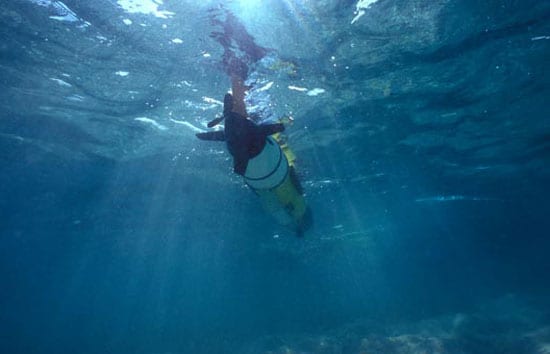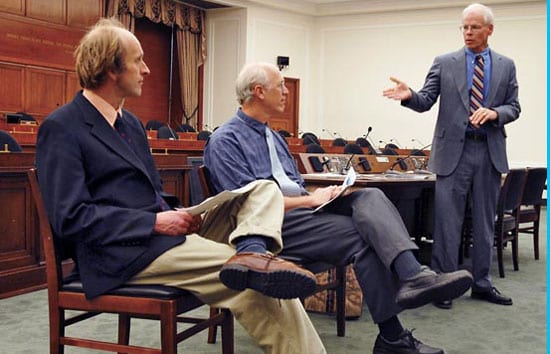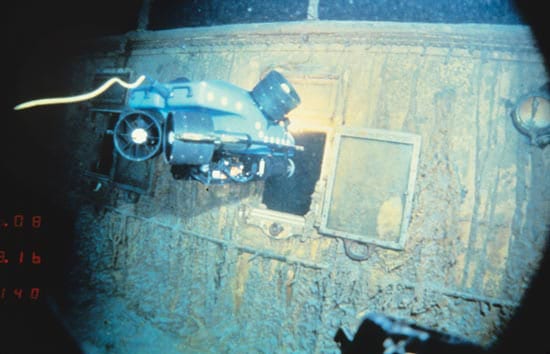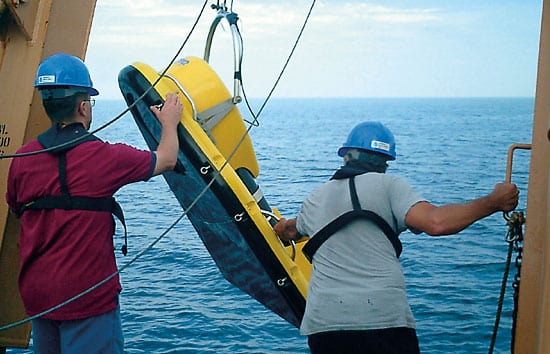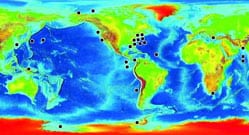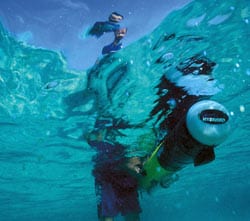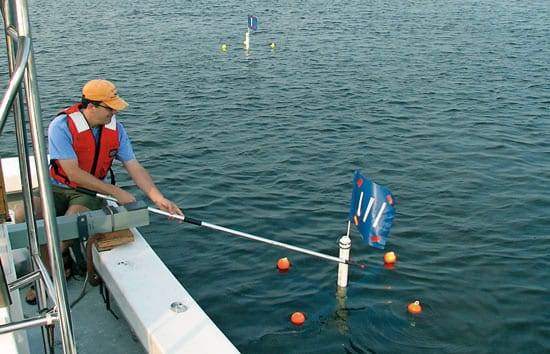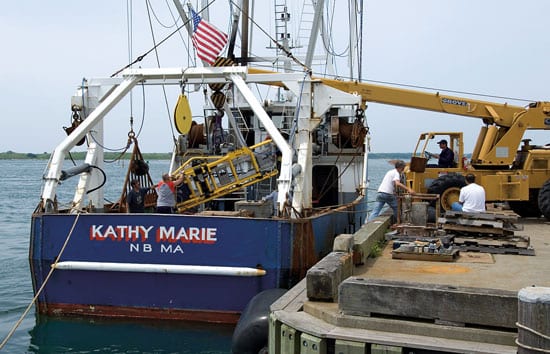Feature
Why the West Wind Wobbles
Winds and temperatures in Earth’s atmosphere vary from month to month and year to year in countless ways. Decades of monitoring the weather and climate have revealed a few simple…
Read MoreReaching Up Into Perilous, Icy Waters
A year had passed since we deployed our mooring in the western Arctic Ocean, which is a long time to ponder the fate of an instrument in a stormy and…
Read MoreA Mooring Built to Survive the Irminger Sea
The 330-foot Royal Research Ship James Clark Ross heaved in 20-foot seas southeast of Greenland. Chief Scientist Bob Pickart and I were aft on the main deck, observing our recently…
Read MoreDeep-sea Tubeworms Get Versatile ‘Inside’ Help
Cross sections of the tubeworm Riftia pachyptila. (Courtesy of Enduring Resources for Earth Science Education) When scientists found lush thickets of 6-foot-tall, red-tipped tubeworms on the seafloor in 1977, they…
Read MoreSunspots, Sea Changes, and Climate Shifts
Natural materials such as shells, ice, corals, and tree rings contain clues to help scientists piece together how our oceans, atmosphere, and land have changed in the past. The history…
Read MoreLakes and Climates Have Their Ups and Downs
Between 5,400 and 3,000 years ago, something happened to New England’s climate. The region became drier. Water levels in lakes dropped. Several droughts persisted for hundreds of years, changing the…
Read MoreHow Long Can the Ocean Slow Global Warming?
It is 4:30 a.m., far from land. A group of scientists clad in bright yellow foul-weather gear gathers in the open bay of a research ship. They wait in the…
Read MoreOcean Circulation and a Clam Far From Home
In my first year of graduate school, I was stumped by a big question on my final exam in biological oceanography. Maybe I had missed the relevant lecture or an…
Read MoreThe Once and Future Circulation of the Ocean
The short history of modern oceanographic observations—less than a century’s worth, really—doesn’t give us a long track record to evaluate how the ocean’s circulation has operated and changed in the…
Read MoreA Rare Glimpse Into the Ocean’s Crust
About one and a half million years ago, a great hidden piece of the ocean’s crust uplifted and rotated, giving Clare Williams a window and a time machine into Earth’s…
Read MoreWhat Other Tales Can Coral Skeletons Tell?
In 2003, we traveled by ship to the New England Seamounts—a chain of extinct, undersea volcanoes about 500 miles off the East Coast of North America—to help collect dead corals…
Read MoreThe Coral-Climate Connection
Are the climate changes we perceive today just part of the Earth system’s natural variability, or are they new phenomena brought about by human activities? One way to find out…
Read MoreStudents Visit the Deep-sea Robot They Named
Seven students from a California high school took a field trip to the Woods Hole Oceanographic Institution in September, after they submitted the winning entry in a nationwide contest to name…
Read MoreLessons from the 2004 Indian Ocean Tsunami
Woods Hole Oceanographic Institution will convene two special conferences this fall to learn from the devastating 2004 tsunami that left more than 220,000 people dead or missing. In July, another…
Read MorePeople Around WHOI
WHOI Creates Office to Encourage Applied Oceanography
Woods Hole Oceanographic Institution has established a new Office for Applied Oceanography to foster applied research supported by sources beyond traditional governmental agencies. To sustain growth in an era of…
Read MoreWHOI Scientists Provide Congressional Testimony
Susan Humphris, chair of the Geology and Geophysics Department, testified May 4, 2006, before the House Committee on Resources, one of several WHOI scientists to appear this spring before members…
Read MoreEngineers Honored for Pioneering Undersea Robot
The engineering team at Woods Hole Oceanographic Institution that built the first fiber-optically cabled deep-sea robot Jason Jr. received the GlobalSpec Great Moments in Engineering award July 14, 2006—on the…
Read MoreListening for Telltale Echoes from Fish
In the 1970s, scientists happened upon a curious phenomenon about sound waves in the ocean and swim bladders in fish: Bony fish have gas-filled sacs inside their abdomens called swim…
Read MoreWHOI Around the World
Map of WHOI Research Around the World
Read MoreOn the Trail of Microbes that Cause Seafood Poisoning…
The Oceans Are Filled with Microbes. Some Are Nasty
Every time you swim at the beach, you are surrounded by zillions of bacteria. There is no escaping them: One drop of seawater contains about 1 million bacteria. Of these,…
Read MoreLegions of Legionella Bacteria
Salty ocean water can be a nuisance. It’s undrinkable and it corrodes nearly everything it touches. But salt water’s inhospitality has always had one benefit: The salt kills microbes, making…
Read MoreNew ‘Eyes’ Size Up Scallop Populations
Part of the fun of fishing is never knowing exactly what might be swimming around beneath you. But that mystery is a major annoyance when it comes to keeping track…
Read More
